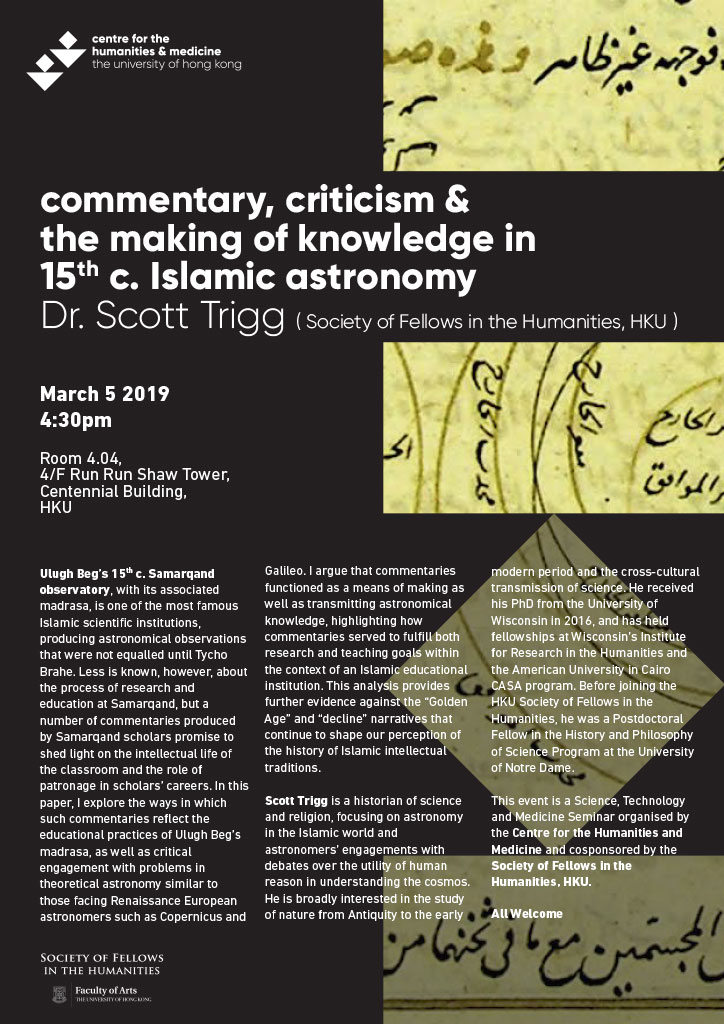| Commentary, Criticism and the Making of Knowledge in 15th c. Islamic Astronomy
Date: 5 March 2019
Time 4:30pm
Venue: Room 4.04, 4/F Run Run Shaw Tower, Centennial Campus, HKU
 Abstract Abstract
Ulugh Beg’s 15th c. Samarqand observatory, with its associated madrasa, is one of the most famous Islamic scientific institutions, producing astronomical observations that were not equalled until Tycho Brahe. Less is known, however, about the process of research and education at Samarqand, but a number of commentaries produced by Samarqand scholars promise to shed light on the intellectual life of the classroom and the role of patronage in scholars’ careers. In this paper, I explore the ways in which such commentaries reflect the educational practices of Ulugh Beg’s madrasa, as well as critical engagement with problems in theoretical astronomy similar to those facing Renaissance European astronomers such as Copernicus and Galileo. I argue that commentaries functioned as a means of making as well as transmitting astronomical knowledge, highlighting how commentaries served to fulfill both research and teaching goals within the context of an Islamic educational institution. This analysis provides further evidence against the “Golden Age” and “decline” narratives that continue to shape our perception of the history of Islamic intellectual traditions.
Bio
Scott Trigg is a historian of science and religion, focusing on astronomy in the Islamic world and astronomers’ engagements with debates over the utility of human reason in understanding the cosmos. He is broadly interested in the study of nature from Antiquity to the early modern period and the cross-cultural transmission of science. He received his PhD from the University of Wisconsin in 2016, and has held fellowships at Wisconsin’s Institute for Research in the Humanities and the American University in Cairo CASA program. Before joining the HKU Society of Fellows in the Humanities, he was a Postdoctoral Fellow in the History and Philosophy of Science Program at the University of Notre Dame.
|